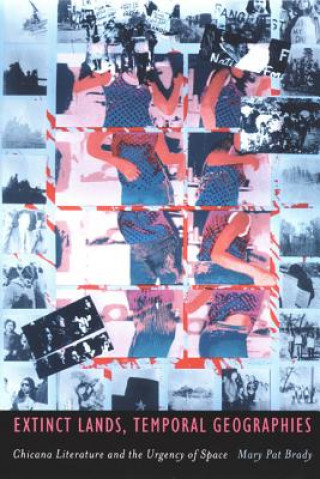
Dostawa
Doradca ds. zakupów





Jednak się nie przyda? Nic nie szkodzi! U nas możesz zwrócić towar do 30 dni
 Bon prezentowy
O dowolnej wartości
Bon prezentowy
O dowolnej wartości
Bon prezentowy to zawsze dobry pomysł. Obdarowany może za bon prezentowy wybrać cokolwiek z naszej oferty.
Extinct Lands, Temporal Geographies
 Angielski
Angielski
 79 b
79 b
 common.delivery_to
common.delivery_to
30 dni na zwrot towaru
Mogłoby Cię także zainteresować


A train station becomes a police station; lands held sacred by Apaches and Mexicanos are turned into commercial and residential zones; freeway construction hollows out a community; a rancho becomes a retirement community-these are the kinds of spatial transformations that concern Mary Pat Brady in Extinct Lands, Temporal Geographies, a book bringing together Chicana feminism, cultural geography, and literary theory to analyze an unusual mix of Chicana texts through the concept of space. Beginning with nineteenth-century short stories and essays and concluding with contemporary fiction, the book reveals how Chicana literature offers a valuable theoretics of space. The history of the Southwest in large part entails the transformation of lived, embodied space into zones of police surveillance, warehouse districts, highway interchanges, and shopping malls-a movement that Chicana writers have contested from its inception. Brady examines this long-standing engagement with space, first in the work of early newspaper essayists and fiction writers who opposed Anglo characterizations of Northern Sonora that were highly detrimental to Mexican Americans; then in the work of authors who explore border crossing. Through the writing of Sandra Cisneros, Cherrie Moraga, Terri de la Pena, Norma Cantu, Monserrat Fontes, Gloria Anzaldua, and others, Brady shows how categories such as race, gender, and sexuality are spatially enacted and created-and made to appear natural and unyielding. In a spatial critique of the War on Drugs, she reveals how scale-the process by which space is divided, organized, and categorized-has become a crucial tool in the management and policing of the narcotics economy. This book makes a significant contribution to an understanding of the literary history, social evolution, and spatial definition of the American Southwest.
Informacje o książce
 Angielski
Angielski
Kategoria




 Jak kupować
Jak kupować


















